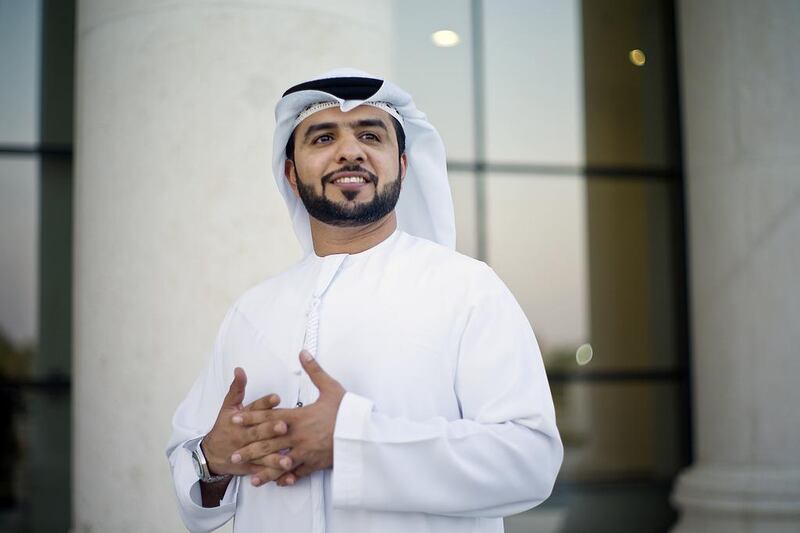ABU DHABI //Entrepreneurship and innovation need to be key subjects taught at universities and colleges to best equip students for life outside of education and make them attractive to potential employers.
Last year, the Ministry of Education began to implement classes in these subjects as part of an optional curriculum at three federal and 12 private universities. As of next year these will be compulsory for all students in their second or third years.
“With limited employment opportunities, entrepreneurship is becoming a viable option to combat unemployment,” said Dr Sanaa Ashour, a lecturer at the Al Khawarizmi College in Abu Dhabi.
A survey of 1,080 students in a variety of disciplines at 14 public and private universities revealed a “gap between entrepreneurial desire and preparedness”, said Dr Ashour.
Thirty-eight per cent expressed interests in becoming entrepreneurs and 23.3 per cent expressed interests in becoming social entrepreneurs — those who help to solve social problems using a business model.
Dr Ashour said the Ministry’s plans are much needed. “Despite this level of interest, the limited access to social entrepreneurship education, training and experience leads to a drive — preparedness gap that must be reduced in order to maximise the potential of the UAE’s next generation.
“Integrating social entrepreneurship as part of university education can ensure that the future entrepreneurs are more socially conscious.”
The Ministry of Education’s plans include training academics at public and private universities to teach the new curricula, holding workshops for faculty and organising visits to Stanford University in California, whose experts designed the foundations of the new syllabus, and innovation hub Silicon Valley in order to introduce staff to the relevant teaching skills and styles and strengthen their abilities.
Dean Hoke, an education consultant from Edu Alliance, said teaching entrepreneurship and innovation could only be beneficial to students.
“Any time students gain a better understanding of entrepreneurship and innovation, the better. Growth will occur in the UAE and other countries from new ideas and small businesses. A number of these attempts will fail, some will succeed to be SME’s and a very few might become the next Tesla, Google, Apple or Microsoft. That is the nature of new companies and ideas.
“The UAE is encouraging people who dream of starting a business or have a new idea to try.
“ The change in bankruptcy laws makes it much more realistic for a person to try than in previous years. A good course in entrepreneurship and innovation will give the students a better understanding and preparation if they one day want to try.”
Dr Fauzia Jabeen, a business lecturer at Abu Dhabi University, where the Fundamentals of Innovation and Entrepreneurship course will be mandatory for students from next year, said more faculty members are being trained to be able to teach the subject.
She said plans to incorporate entrepreneurship and innovation into the higher education curriculum were a “positive step in fostering entrepreneurship among the youth who are the building blocks of the nation”.
“It will promote entrepreneurship and cultivate local innovation arrangements which in turn will boost the country’s productivity, competitiveness, and economic growth.
“Early exposure to entrepreneurship through education is a critical contemplation in developing successful entrepreneurs.”
She said many students, Emirati and non Emirati, “realised the progressive significance of being an entrepreneur”.
“As every business is striving hard for survival and to attain sustained competitive advantage, students are eager to learn more about various entrepreneurial skills and knowledge that will differentiate them from others.”
Emirati students Khalifa Almazrouei and Younis Al Bloushi welcomed the idea of entrepreneurship being part of the curriculum.
Mr Almazrouei, 46, is studying mass communications at Khawarizmi College. “The curricula will ensure entrepreneurs learn the necessary skills that will help them move forward in their development such as formulating business development plans, understanding the risk of business, challenges, financing opportunities, market research.”
Mr Al Bloushi, 31, said social entrepreneurship should be a compulsory course. “It will help students to become active members in serving their community by being proactive and better equipped to face societal challenges. It will make the students’ way of thinking driven by moral rather than by financial motives.”
mswan@thenational.ae






